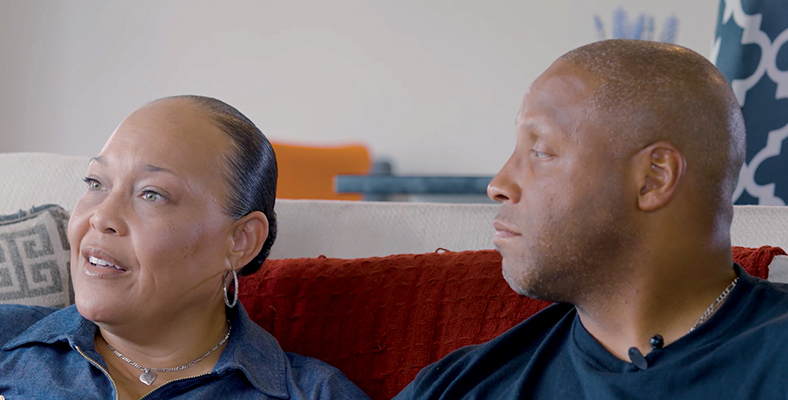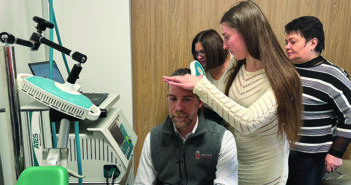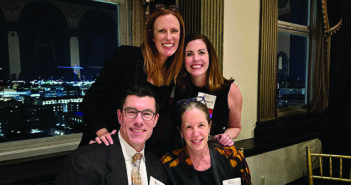Alum’s documentary explores the harms of the malpractice system.
Emmy-nominated documentary filmmaker Mark Brady MD’09 MMSc’09, MPH, an assistant professor of emergency medicine at Brown, says what surprised him most when he set out to make a film about malpractice was how hard it was to find anyone willing to speak on camera.
As one doctor points out in Brady’s new film, A World of Hurt: How Medical Malpractice Fails Everyone, many physicians are sued for malpractice at some point in their career. Yet no one wants to talk about it. “It’s one of the most taboo things,” Brady said after a film screening at a meeting of the Rhode Island chapter of the American College of Emergency Physicians in November at the Avon Cinema in Providence.
Directors Viknesh Kasthuri ’21 MD’25 and Alexander Homer ’21 MD’25 ultimately had to fly around the country to find patients, families, physicians, and attorneys to interview for the documentary. A World of Hurt weaves together their tragic stories of real and alleged medical errors and their aftermath, revealing a broken system and the urgent need for a new approach. Brady, who has produced three previous documentaries (see Brown Medicine, Spring 2015), produced the new film. In A World of Hurt, the current malpractice system exacts a terrible financial and emotional toll on everyone involved—yet no matter the outcome, no one wins. As the sister of a Michigan patient who died puts it, even though her family won their suit, “I’d realized it doesn’t matter. … It didn’t change anything.”
The film also presents the story of a Washington physician sued for malpractice after he retired. Ashamed and humiliated, he sunk into a deep depression—and took his own life. “He just gave up,” his widow says. “I just think there’s a better way.”
“By the time the process is done for everybody, the patients are completely burnt out. Whatever the settlement is, they’re not going to be happy with it. The physicians aren’t going to be happy with it,” Brady said at the RI ACEP meeting.
He noted that, often, the problem is the medical system itself—but patients can’t sue the hospital or the health system. “Unfortunately, at the end of the day, it’s those of us that actually are trying to help patients that ironically are the only ones that patients or their families afterwards can sue,” Brady said.
A World of Hurt concludes with some hope: around the country, hundreds of hospitals have implemented communication and resolution programs, which offer health systems a more compassionate, transparent way to address unintentional patient harms and prevent them in the future. In the film’s final story, a North Carolina couple whose daughter died during a hospital stay tell how they wanted “to have a real open, honest conversation” with hospital leaders about what had gone wrong so it wouldn’t happen to another family. “They heard us,” the mother says.
“Any system that keeps that therapeutic relationship, keeps that trust, keeps that honesty with patients about what happened will be better than what we have now,” Brady said.




